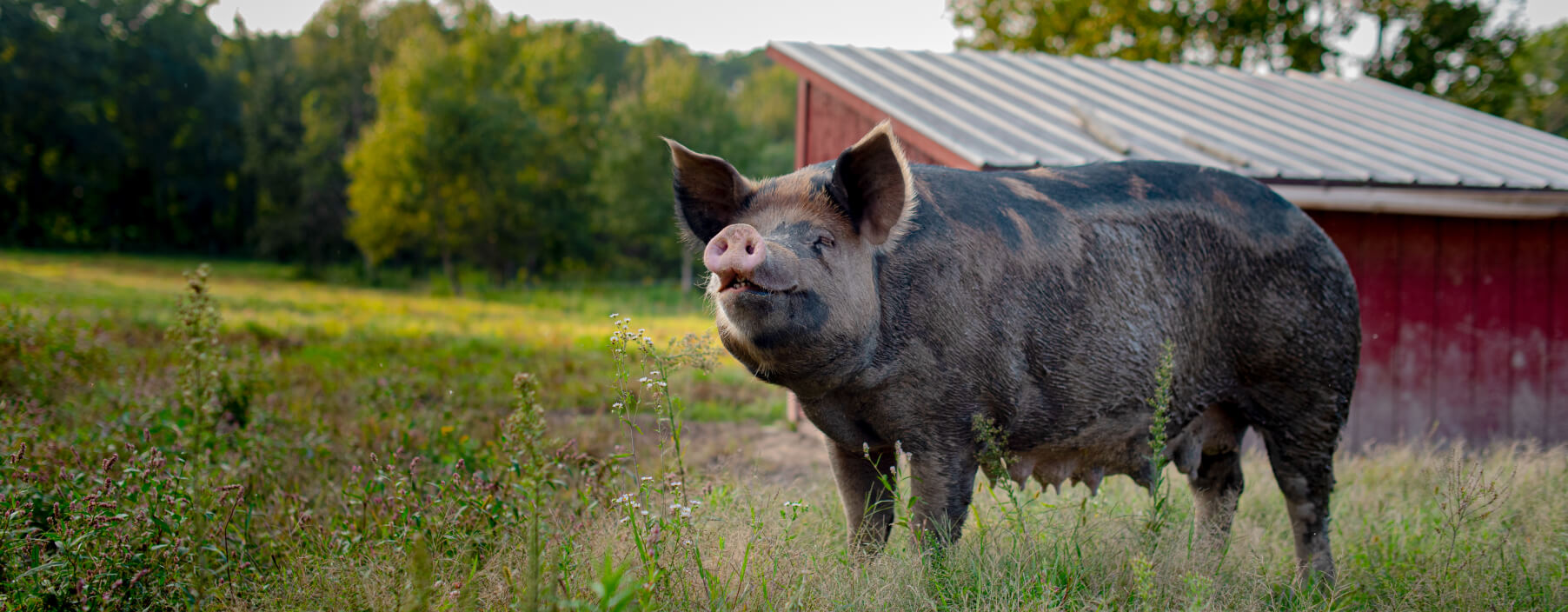
Farming in Harmony with the Environment
Sustainability has always been at the core of all decisions we make here at Karl Family Farms. Many alternative farming practices cause the erosion of topsoil, which results in a deprivation of nutrients and alters the surrounding soil's physical properties. To avoid this, we practice regenerative farming techniques that enrich and replenish the soil.
To mimic the ecosystem of natural grasslands, we rotate our animals on pasture. To preserve nutrients in the topsoil, we spread compost on our pastures and fields; this helps increase soil fertility and build biomass. These practices ensure that our farm will stay vital for generations to come and continue to feed our animals the minerals that this land has always had to offer -- resulting in richer, more wholesome products for you.
Here on the farm, our motto is "Nothing fuels you like family." The farm however, requires more than just family to function. To run our operations, we receive upwards of 90% of our energy needs from solar power and take steps wherever we can to reduce our carbon footprint.
The More Animals, The Merrier
At a glance, it may seem like there are only cattle, pigs, and sheep residing on our farm. However, there are a variety of critters that wander around ranging from ducks, geese, goats, donkeys, guinea hens, and more.
Besides the residents of our farm, we have frequent "guests" from surrounding areas. Our beloved livestock guardian dogs mostly chase away any unwelcome guests, leaving the surrounding ecosystem unharmed.
Just like nature, we believe the best communities are diverse. As such we believe that our farm benefits from operating in harmony with nature and does not work without a diverse community of fauna and flora. Each species has an unspoken job and impact on our farm.
For example, hooves from donkeys and goats each way, while manure from the cattle and hens produce different nutrients to fertilize our pastures. Our little farmers also manage a group of goats to help clear brush, lessening the environmental impact of maintaining the farm.
With our variety of animals, we are also able to mitigate the risk of many diseases. In simple terms, the animals lessen the number of parasites by cleaning up after one another. Additionally, the geese on our farm serve as our very own natural alarm systems. They are the first to alert the animals (and us) of any predators in the vicinity.
Currently, none of our animals besides cattle, pigs, and lamb are available in products for purchase. However, we may surprise you with limited run and specialty offerings. Make sure to stay tuned!
Growth in Sustainability
Sustainable growth was a learning process for us. We started with selected breeds, planning out rotation and diets for the farm animals. Over time, we found ways to communicate with our animals while keeping in mind there is a limit to how much an animal is capable of doing.
On this journey, we have learned a lot about the efforts needed to achieve our goal of sustainability. We treat our land and everything that grows on it with the utmost respect, as we remain grateful for the crops, pastures, and, of course, our animals. One thing we never changed in our journey is the humane handling of our livestock.
Compassion is at the heart of our operations. We put a lot of effort into monitoring animal behavior and developing proper communication with the animals for which we care. Regardless of the animal's purpose, we believe throughout its life it deserves space, safety, comfort, health, and proper nutrition.
At Karl Family Farms, we strive to offer each of our animals a good, healthy life. That's why we take a holistic approach that extends beyond basic animal care. We make sure that our employees receive proper training, and we continuously improve our contingency plans to prepare for unexpected situations.
Our farm is our home, and the animals on it are our family. The same goes for the families and animals surrounding us. We will continue to do our part in maintaining the health of the earth we share.